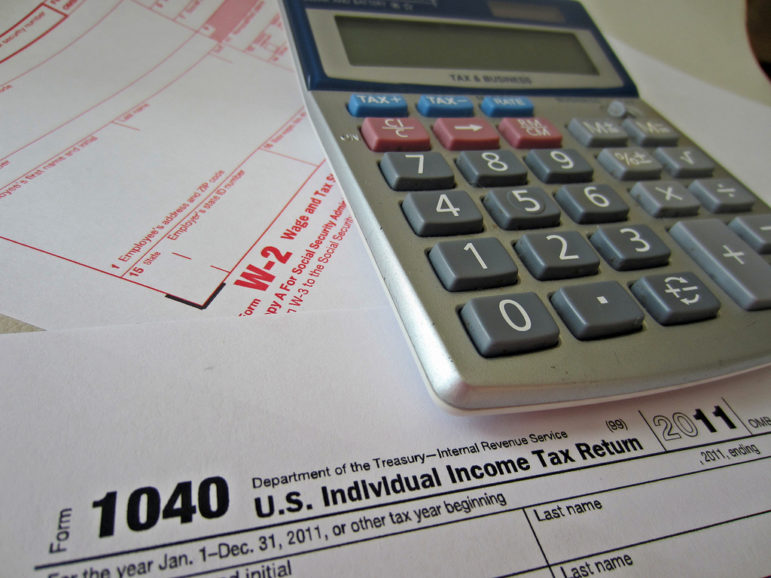
401kcalculator.org
There has been a growing awareness in recent years of the devastating physical and psychological effects of domestic violence, but many people are not aware of the financial impact of abuse. Economic abuse is present in 98 percent of abusive relationships and can take a variety of forms. Abusers often open up credit cards in their partners’ name, prohibit them from working or harass them at work to the point where they get fired, or restrict their funds in order to control their behavior and keep them from leaving. One study showed that a full 50 percent of abused, employed women have been harassed at work by their abusive partners.
Economic abuse and domestic violence can happen to anyone, regardless of gender, race, or socioeconomic background. In one recent example, it became public that Mel B from the Spice Girls experienced both physical and economic abuse at the hands of her husband, who controlled and concealed her finances. Even those with significant financial means can be victims of economic abuse.
As victims may find themselves without a job, on a strict allowance, or without access to shared funds or assets like bank accounts or mortgage documents, they may feel they have no choice but to endure the abusive relationship and might think leaving will force them into homelessness and poverty. In fact, victims often end up returning to their abusers after leaving because they struggle with maintaining financial independence after their abuser has damaged their credit, income, or work history.
This does not have to be the case. The most important thing for people facing economic abuse in a domestic violence situation is to remember that they do not have to resign themselves to their situation. There are tangible things victims can do to prepare themselves to flee their abuser and safely rebuild their credit, finances, and life.
Here are five tips for domestic-violence victims in economically abusive situations:
1. Gather financial records: Keep a copy of any important financial or personal documents for yourself and those who will be fleeing with you—bank statements, birth and marriage certificates, ownership documents for shared assets—in a safe place outside of your home. This can be with friends or family, or in a secret location.
2. Set aside extra money: Set aside funds, even a small amount, whenever possible with a trusted person or in a secret location to ensure a degree of financial security upon leaving an abusive situation.
3. Obtain your credit report: Credit reports are traceable, so get a copy of yours before leaving an abusive household. These can be requested for free once a year from any of the three major credit bureaus: Equifax, Experian, and TransUnion. Report any fraudulent or disputed charges so you can begin to assess and rebuild your credit when you leave.
4. Create a budget: Look into the cost of housing, food, and other living expenses so that you know what to expect when you leave your relationship to live on your own. Be sure to use incognito mode on your phone or computer, or do your research on a computer outside of the home to avoid the risk of your abuser finding your search.
5. Protect your identity: Change any PIN codes or passwords, and be careful about sharing your personal or financial information on the internet. Also, make sure the abuser can’t track your online activities—including research on financial independence.
Jennifer White-Reid is the Vice President of Domestic Violence Programs at Urban Resource Institute. If you or someone you know is being abused, please call the 24-hour National Domestic Violence Hotline at 1-800-799-7233









2 thoughts on “CityViews: Understanding Economic Abuse is Key to Escaping Domestic Violence”
This is only the tip of the iceberg. If you have kids, the abuser is allowed to bring you back to court everytime custody changes and every year beyond that. If you are dependent on child support, they can go months without payment before the govt goes after them. Even then, the victim pays the state for all the collb ections as well as the fee for having your case submitted to the child support office.
Another way in which economic abuse occurs is that the abuser will not pay bills or is consistently late paying. This leaves the burden of payment on the victim especially when he is not employed and they have children in common. Some abusers weasel their way through the system as the victim with a shark-attorney and the perpetrator ends up receiving some kind of financial support. The abuser then has even more power and control over the victim. When women have multiple children, this becomes quite burdensome for a long time. Victims are also re-victimized by others’ expectations of them to just leave their home. The probability of becoming homeless is always real in these cases. While homeless and domestic violence shelters are a temporary fix, the disruption in her and possibly her children’s lives is often more unmanageable than staying. For all the good that shelter programs do, they are not able to financially support victims. Unfortunately, the options are so limited and victims are stuck until they can make a life-changing decision with hope and a prayer that they will survive.